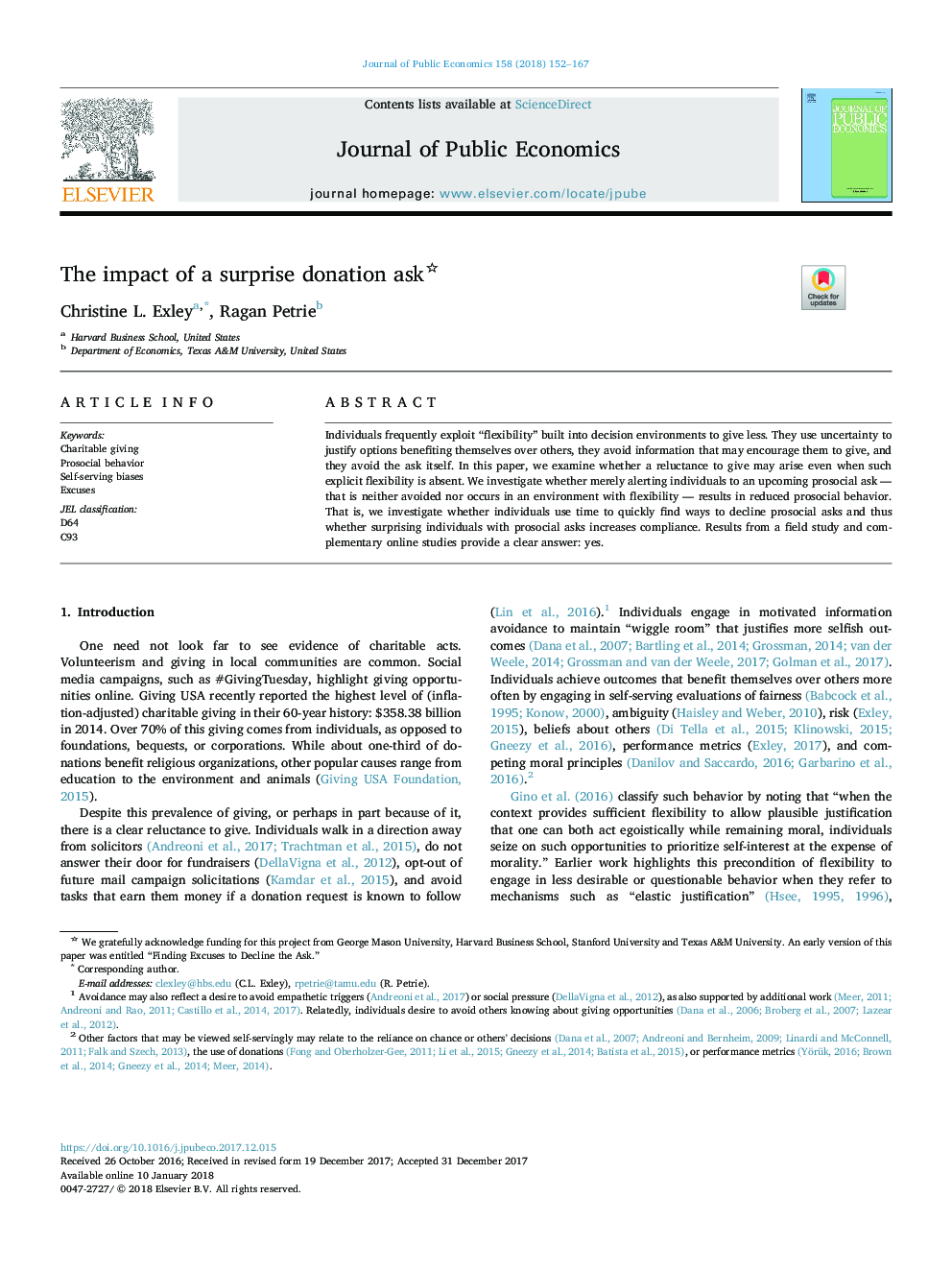| Article ID | Journal | Published Year | Pages | File Type |
|---|---|---|---|---|
| 7369618 | Journal of Public Economics | 2018 | 16 Pages |
Abstract
Individuals frequently exploit “flexibility” built into decision environments to give less. They use uncertainty to justify options benefiting themselves over others, they avoid information that may encourage them to give, and they avoid the ask itself. In this paper, we examine whether a reluctance to give may arise even when such explicit flexibility is absent. We investigate whether merely alerting individuals to an upcoming prosocial ask - that is neither avoided nor occurs in an environment with flexibility - results in reduced prosocial behavior. That is, we investigate whether individuals use time to quickly find ways to decline prosocial asks and thus whether surprising individuals with prosocial asks increases compliance. Results from a field study and complementary online studies provide a clear answer: yes.
Related Topics
Social Sciences and Humanities
Economics, Econometrics and Finance
Economics and Econometrics
Authors
Christine L. Exley, Ragan Petrie,
